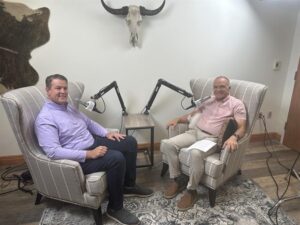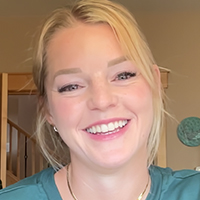Self Employed Refinancing Problems – What Can Business Owners Expect?

Self Employed Refinancing Problems – What Can Business Owners Expect?
By Tristan Hunt
Self Employed Borrowers at Greatest Risk of Foreclosure
It’s a hot topic. Millions of self-employed borrowers who purchased or refinanced a home in the past 5 years under liberal “stated income” or “no documentation” mortgage programs are finding they cannot qualify to refinance their Adjustable Rate best mortgage company for self employed in today’s market, and are at risk of losing their homes to foreclosure when the fixed rate or minimum payment period on their Adjustable Rate ARM Mortgages resets or recasts to a much higher adjustable payment.
In some cases, particularly for borrowers with Option ARM minimum payment loans, the payment could as much as triple over the next 3 years. Tighter lending standards, higher interest rates, and a slowdown in housing prices are making a dangerous combination for self employed refinance borrowers.
But there is light at the end of the tunnel for those who are able to take advantage of special fixed rate lending programs to lock in historically low rates and flexible loan options now, and plan their finances around meeting the lending guidelines of tomorrow.
Refinancing for the self employed has gotten significantly easier over the last few years, due primarily to ready availability of stated income and no income verification refinance loans.
These are loans for which there is little to no documentation required from you to substantiate your income for the purposes of qualifying for a refinance. Over the past few quarters, especially during the current quarter, credit score requirements for these types of mortgages have increased substantially.
So while a credit score of 620 was definitely considered “good” by mortgage companies as recently as December 2006, most limited documentation loans require a minimum of 720 credit scores today. Even though certain specialty lenders may still be able to refinance a borrower with stated income below a 720 FICO credit score today, you will not be able to borrow quite as much against the old homestead as you could have previously either.
And when you refinance again in the future, or purchase your next home, you will probably be asked to document your income. So how can a self employed person or a business owner navigate a complex and changing lending environment? With today’s progressive conventional lending guidelines it’s actually relatively simple: Go back to basics, because the basics will survive.
There are five major factors (and dozens of little ones) to keep in mind when a self employed person refinances:
1. Loan to Value (or LTV):
This is the Balance of your loan divided by the market value of your property at the time you refinance. Loan to Value ratios below 80% ( for example if you owe $640K on a home currently worth $800K) have historically been significantly easier to finance than LTVs over 80%.
2. Credit Scores:
Business owners’ credit tends to take a beating in the first several years of starting a business, primarily because a lot of new debt is incurred on credit cards, lines of credit, new personal loans and personally guaranteed business loans, and the hundreds of credit apps that you may file with suppliers, vendors and even some of your pickier customers.
If you are refinancing today, you may not have time to improve your credit too much, but consulting with a mortgage specialist regarding your credit profile in detail may provide you with the tools to boost your scores enough to qualify.
If you are planning on refinancing in the future, first consider whether you can refinance today and take advantage of the flexible programs and low payments still available. If you have to wait, you should be trying to increase your credit scores to 720 or better. Smart use of personal credit cards (always get them to increase your limits, and never carry a balance of more than 50% of the limit on a single card) and timely monthly payments have the potential to significantly increase your credit scores.
3. Proof of Self Employment:
Just like a normal wage-earning person would have to his employer verify employment for the past 2 years, the self employed person must be able to prove he’s been in business, even if he’s stating his income. This means more than just incorporation.
Be prepared to provide a business license which has been issued in your name or the name of the business for 2 or more years, or in lieu of a business license a letter from your CPA saying that for the past two years he has been preparing your tax returns, that you are self employed, and preferably that you file Schedule C or the appropriate schedules for your filing category.
If you are in business which requires a license in your area, you must be able to provide an explanation of why you don’t have one, and even that may not suffice.
4. Proof of Income:
There’s an old saying that goes: “You can beat the Tax Man, or you can beat the Bank, but you can’t beat them both”. You may wish to write off tremendous amounts of expenses directly from the business and pay yourself a dollar, thereby beating the IRS, but in that case you would not be able to qualify for a prime loan unless your credit score was sufficiently high, and your LTV sufficiently low enough to state your income or ignore it entirely (“No Ratio” or “No Income Verification”).
The normal, and most acceptable form of documentation of income, which will give you the best pricing and allow you to borrow the most money, is tax returns. If the applicants are the only owners holding any equity in the business, you may be able to use your business tax returns to prove income, but this type of documentation is not accepted by every lender. If tax returns are not going to be an option, get those credit scores up and be prepared to state your income at a “reasonable” level!
NOTE – To answer another frequently question: Bank Statements, whether personal or from the business, are generally unacceptable as proof of income for “prime” loans, and as you may have heard in the news, there’s not much “sub-prime” lending still going on, so prime is what you want to shoot for.
5. Proof of Sufficient Assets:
Most industry experts who deal in the mortgage secondary market, where closed loans are bought and sold by banks and investors in mortgage backed securities, believe that we are seeing the end of truly “stated” and “no doc” lending, and that at least over the next few years that applying for a mortgage will require borrowers to be able to verify either income or assets at the least.
So if you state income, you should be able to prove that you have money in the bank which is commensurate with the income level you have stated and the monthly housing expenses you claim on your loan application.
By this logic, a person stating they make $6,000 a month and have been doing so for 2 years, with total monthly expenses of $3000 a month, should have at a bare minimum $6000 to $9000 in the bank to pass a “reasonableness test”. By assets we generally mean liquid assets, cash in the bank, stocks, bonds, and to certain extent retirement accounts.
Certain personal assets which can be appraised and are generally appreciative or accretive in value by nature, for example fine art, may be included provided a professional appraisal is conducted and insurance is taken out in at least the amount claimed.
If you can’t refinance and lock in a rate today, then 2 months before you refinance, plan on keeping your liquid assets as high as possible, be it in savings or investments etc., until you close the refinance.
This covers all of your bases. Business bank statements can generally be used to substantiate assets, but only if your CPA provides a letter stating that you have full access to 100% of those funds and that withdrawing them will cause no material harm to the business.
In summary, if you are self employed and planning on future mortgage refinances:
Make sure your business is properly licensed and that your CPA is doing your books and taxes from the very beginning. Keep your credit scores up, and try to improve them wherever possible by increasing your credit limits and paying down your balances.
Never, no matter how tight things get, miss a mortgage payment, or pay more than 14 days late. Decide now how you are going to account for your income. Being able to document your income through tax returns is something you really should consider, whether it’s personal or, if you’re the only owner, then possibly through the business returns.
Finally, contact a mortgage company who really specializes in refinancing the self employed about 2 months ahead of the time you want to refinance, so you can plan the process and be prepared with everything you need to get the job done properly.
Don’t assume that your current lender or servicer will give you anywhere close to the best deal when you refinance, because the nature of the business is that they can make more money the second time around, and are more than likely to try it! My final tip? Hold on to the name of your title company and your appraiser, it may save you some time and money when it comes time to refinance again.
Now if that all sounds like a lot of work, well it is. The best mortgages for self employed option for many self employed borrowers and business owners is to refinance now and pay off credit-damaging debts, especially if you are in an Adjustable Rate Mortgage, or ARM.
If you’re like most business owners in America today, you are probably in a payment cap or pay option ARM, an adjustable rate mortgage with a 1% or lower start rate and multiple payment options each month.
It’s no secret why these are popular, they’re relatively amazing loans, but the problem is that they are adjustable, if not today then at some point in the future. What’s this all mean? Rates are rising rapidly, which means the amount of interest you defer is getting higher each month.
And home values are flat to declining in almost very major market in the country, meaning that the negative amortization you incur when selecting the minimum payment, while not a bad thing in and of itself, may put you in a situation where you cannot refinance because your loan goes “upside down”, with the balance growing larger than the value of the home.
Unless you have a very specific purpose in mind, I don’t recommend keeping one of these option ARM mortgages if you need to refinance it within the next 3 or 4 years, as almost every economic outlook points to higher rates to curb core inflation over that timeframe.
If you want the flexibility of a minimum payment option to defer interest and make the lowest housing payment possible as desired, you may qualify for a fixed rate mortgage which has the same payment options as the option ARM. The best one of these loans is the 30 year fixed variety, which is not very common, but is probably the brightest spot in the entire mortgage business at the moment with a fixed rate for 30 years and minimum payment of under 2% for the first 10 years.
The best part is that this 30 Year Fixed Cash Flow no doc refinance mortgage loans allows for no income verification if you are borrowing less than 75% of the value of the property, and you don’t have to have high credit score just as long as you haven’t missed any mortgage payments.
Even if you have a pre-payment penalty, talk to your accountant and see if like most people you qualify to deduct the penalty amount as pre-paid interest on your taxes, because locking in a rate now is a very smart thing to do, and who knows when you’ll be able to do it again?
Subscribe our YouTube Channel for more updates.
We hope you found this article about “Self Employed Refinancing Problems – What Can Business Owners Expect?” helpful. If you have questions or need expert tax or family office advice that’s refreshingly objective (we never sell investments), please contact us or visit our Family office page or our website at www.GROCO.com.
To receive our free newsletter, contact us here.
Subscribe our YouTube Channel for more updates.

Alan Olsen, is the Host of the American Dreams Show and the Managing Partner of GROCO.com. GROCO is a premier family office and tax advisory firm located in the San Francisco Bay area serving clients all over the world.
Alan L. Olsen, CPA, Wikipedia Bio

GROCO.com is a proud sponsor of The American Dreams Show.

The American Dreams show was the brainchild of Alan Olsen, CPA, MBA. It was originally created to fill a specific need; often inexperienced entrepreneurs lacked basic information about raising capital and how to successfully start a business.
Alan sincerely wanted to respond to the many requests from aspiring entrepreneurs asking for the information and introductions they needed. But he had to find a way to help in which his venture capital clients and friends would not mind.
The American Dreams show became the solution, first as a radio show and now with YouTube videos as well. Always respectful of interview guest’s time, he’s able to give access to individuals information and inspiration previously inaccessible to the first-time entrepreneurs who need it most.
They can listen to venture capitalists and successful business people explain first-hand, how they got to where they are, how to start a company, how to overcome challenges, how they see the future evolving, opportunities, work-life balance and so much more..
American Dreams discusses many topics from some of the world’s most successful individuals about their secrets to life’s success. Topics from guest have included:
Creating purpose in life / Building a foundation for their life / Solving problems / Finding fulfillment through philanthropy and service / Becoming self-reliant / Enhancing effective leadership / Balancing family and work…

MyPaths.com (Also sponsored by GROCO) provides free access to content and world-class entrepreneurs, influencers and thought leaders’ personal success stories. To help you find your path in life to true, sustainable success & happiness. It’s mission statement:
In an increasingly complex and difficult world, we hope to help you find your personal path in life and build a strong foundation by learning how others found success and happiness. True and sustainable success and happiness are different for each one of us but possible, often despite significant challenges.
Our mission at MyPaths.com is to provide resources and firsthand accounts of how others found their paths in life, so you can do the same.
5 Powerful ESG, Business, and Investing Trends
Key ESG, Business, and Investing Trends. What does the future hold for businesses navigating the complexities of sustainability and finance? A recent American Dreams Show interview by Host, Alan Olsen on behalf of Legacy Builder’s invitation only philanthropy events, of Michael Meehan, titled “The Future of ESG and Impact Investing with Michael Meehan“. The interview…
The Power of Design Packaging: 4 Steps Make Successful Entrepreneurs
What is design packaging, how can it help entrepreneurs be successful, and where to learn more about it? In a world where first impressions are everything, the art of design packaging has emerged as a critical factor in setting businesses apart. Few understand this more profoundly than Randi Brill, Chief Creative Officer of JUST CALL…
Brian King – The Market for Alternative Investments
Brian King – Alternative Investments Unlocking liquidity in illiquid assets: How Brian King’s LODAS Markets is revolutionizing alternative investments. Introduction What if you could turn traditionally illiquid assets into liquid ones, opening up a world of new investment opportunities? Brian King, a seasoned veteran of the stock exchange industry, is making this a reality. Through…
How Becca Switzer is Transforming the Roofing Sales Industry
This week on American Dreams: Becca Switzer, the visionary behind Roof Sales Mastery, is redefining success in the roofing sales industry. With a unique blend of education, authenticity, and proven strategies, Becca has empowered countless sales reps to thrive in a competitive market. Her innovative training programs provide a step-by-step roadmap for mastering roofing sales,…




